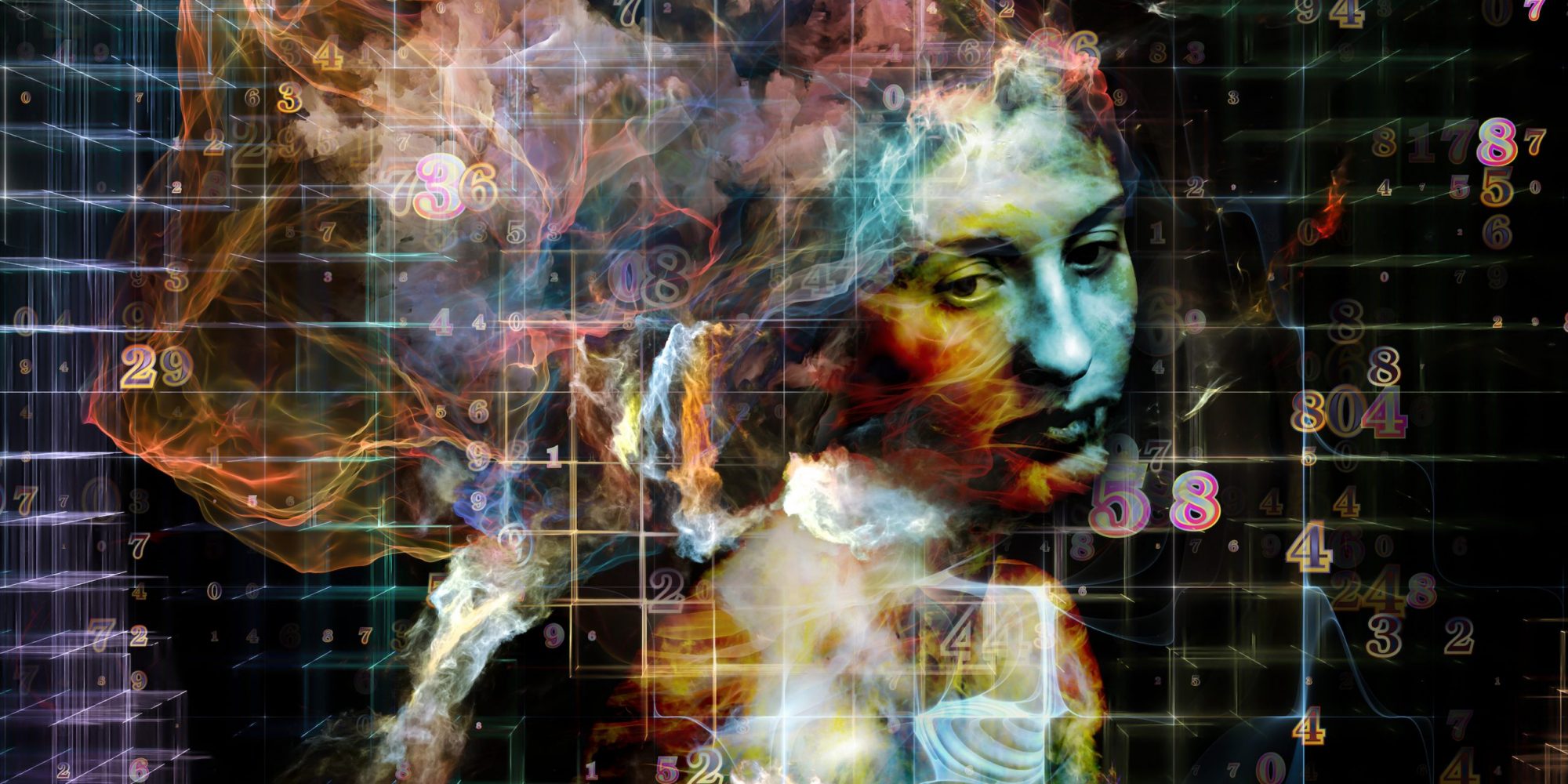Spinoza versus humanism (The Return of Metaphysics)
Reading | Metaphysics
![]() Prof. Yitzhak Y. Melamed, PhD | 2023-05-14
Prof. Yitzhak Y. Melamed, PhD | 2023-05-14

Now that metaphysics has been rehabilitated in our philosophical discourse, Spinoza’s thought can help us overcome our last idol of delusion: humanism, the notion that humans are in some innate sense special and separate from the rest of nature. This essay is the final installment of our The Return of Metaphysics series, developed in collaboration with the Institute of Art and Ideas (IAI). It has been first published by the IAI on 12 May 2023.
A few years ago, I took part in a conference at Bochum University, and partly out of respect for the university which hosts the illustrious Hegel-Archiev, I decided to present a paper in which I argued that, not unlike Hegel’s Encyclopedie, one can profitably read Spinoza’s Ethics as a circular text which ends just where it begins. The Q&A session after my talk was lively and joyous, but one specific question still resonates with me. “This was an interesting talk. Still, if I may. What is the point of engaging again with Spinoza’s metaphysics? Has not Kant already proved that dogmatic metaphysic is obsolete?” asked one of the participants, a senior Kant scholar and philologist. Since the question was genuinely well-meant and fair, I asked the scholar whether he would mind repeating Kant’s proof, so that we could consider it jointly. At which point I was rewarded with a warm, generous, smile followed by a hand gesture which I interpreted as indicating certain desperateness or recognition that some ‘dogmatic’ philosophers are just incorrigible.
While few contemporary philosophers would be as blunt as this colleague and friend, one must admit that the underlying view that Kant killed off metaphysics dominated modern philosophy until very recently. This perception of Kant as the “all-crushing [Alleszermalmer]” destroyer of metaphysics, is not groundless.
Today, the main resistance to Spinoza’s return—but also the reason why it is urgent and necessary—is less the dismissal of metaphysics as dogma and more an attachment to a dogma of a different sort: humanism. To the extent that Anglo-American philosophy has opened itself to rigorous metaphysical thought, Spinoza has been well and truly rehabilitated—much of contemporary monist metaphysics is directly indebted to Spinoza. Overcoming the attachment of (not just analytic philosophy) to humanism—the belief that human beings occupy a uniquely prominent place in nature—has proved even harder than rehabilitating metaphysics. But given the crises that this ideology has given birth to, overcome we must, and Spinoza is the philosopher to help us do it.
As far as the return of Spinozist thought in metaphysics is concerned, the two centuries that followed Kant witnessed two major waves of attempts to rehabilitate metaphysics by overcoming Kant’s various bifurcations of reality: first, the German Idealism of the early nineteenth century, and then, toward the end of that century, British Idealism. The two movements were closely related and Spinoza’s metaphysical monism and systematicity were a major source of inspiration for both of them. Most of the key figures in both German and British Idealism presented themselves as either Spinozists or as attempting to provide an improved, or elevated, Spinozism.
As has been argued in previous installments of The Return of Metaphysics series, analytic philosophy began as a rebellion against what was seen as the metaphysical extravagance of the British Idealists. As a consequence, throughout most of the twentieth century, the shares of Spinoza’s philosophy plunged just as the entire discipline of metaphysics suffered from severe disrepute. Analytic philosophy had a lukewarm attitude toward Spinoza in spite of the fact that, from its very inception, analytic philosophy aspired to approximate the precision and clarity of mathematics, an aspiration that could hardly be better matched in any other major philosophical work than in Spinoza’s axiomatized Ethics.
It was just natural that the recent rehabilitation of metaphysics in the Anglo-American world over the past thirty or so years has been accompanied by a huge surge of engagement with Spinoza’s philosophy, first in North America, but more recently, also in all other quarters of Anglo-American philosophy. Apart from the re-emergence of metaphysics as a central discipline of philosophy in the Anglo-American world, one can also discern a few additional causes for this recent surge, not the least of which is the emergence of Spinoza as an icon in the French philosophical scene during the 1970s and 1980s. This latter event itself took place partly due the wide impact of the work of a few outstanding philosophers—most of all, Martial Gueroult (1891-1976), but also, Alexandre Matheron (1926-2020), and Gilles Deleuze (1925-1995)—and partly due to certain developments in the French left and the attempt to establish a Marxism free from humanistic illusions. While, traditionally, Marxism was built upon Hegelian conceptual foundations, the new French Marxism of the 1960s and 1970s attempted to offer a Marxism grounded in Spinozist metaphysics, and as such, free from the illusions of teleologically structured history, subjectivity, and humanism.
The impact of the work of a few outstanding philosophers was also crucial in the rise of Spinozism on the American shores of the Atlantic, and here, the works of Don Garrett and Michael Della Rocca had the most decisive role. Both figures showed that a careful and accurate reconstruction of Spinoza’s arguments reveals a metaphysical system which might well seem odd to us (at least at first sight), yet is still highly impressive in terms of its precision, ingenuity, boldness, and consistency.
It goes without saying that the development of various forms of monism in recent analytic philosophy—think, for example, of the works of Jonathan Schaffer and Galen Strawson, each of which could be considered as offering a certain kind of Spinozism (not Spinoza’s Spinozism, but Spinozism nonetheless)—provided auxiliary winds to the sails of the new Spinozist armada.
Overcoming the dogma that metaphysics must be dogmatic—i.e., inadequately motivated, and obscure—was one of the main challenges for the rehabilitation of Spinozism. To the extent that contemporary analytic metaphysics is open to philosophy that is precise yet bold, and to the extent that it is no longer captivated by blind obedience to common sense, Spinozism can and will flourish. But there is another dogma—one which is not unique to current Anglo-American philosophy—the overcoming of which is likely to result in an even more radical upheaval.
Humanism—in a nutshell, the view that humanity occupies a uniquely prominent place in nature (if it is part of nature at all), and that the human perspective should be justly considered as constituting the boundaries and structure of reality—has deep philosophical roots, going back as far as Protagoras’ dictum: “Man is the measure of all things: of those that are—that they are, and of the things that are not—that they are not.” Humanism dominated the mainstream of modern philosophy both before and after the advent of secularization. Figures as diverse as Pico Della Mirandola, Descartes, Leibniz, Hegel, and Sartre pledged their allegiance to its tenets. In a sense, we are all humanists today: we believe in the miracle of free will (even if we do not believe in any other miracle), we adore human dignity as an innate determination of all humans (war criminals included), and we do our best to point out allegedly unique features of human beings—consciousness, self-consciousness, unity of the self, freedom, rationality, the ability to act morally, or whatever—features that may help us justify our attitude toward other animals, as mere things. Our default humanism functions as a genuine ideology: for the most part it is invisible, seamless, and taken for granted, and one needs to train herself in defamiliarization in order to recognize the arbitrariness of these deep-seated convictions.
Of all modern philosophers, Kant was the most sophisticated, most systematic, most resourceful, and most influential advocate of humanism. In the opening lines of his Anthropology from a Pragmatic Point of View, Kant writes: “The fact that the human being can have the ‘I’ in his representations raises him infinitely above all other living beings on earth. Because of this he is a person, and by virtue of the unity of consciousness through all changes that happen to him, one and the same person—i.e., through rank and dignity and entirely different being from things, such as irrational animals, with which one can do as one likes.” For Kant, one of the reasons humans “are entirely different beings” from other animals is due to the fact that humanity takes part in the noumenal realm, and, as such, is free and not constrained by the strict determinism that governs experience, or nature. Moreover, while Kant argued that we cannot have knowledge of God, he still emphatically maintained that it is rational to have faith both in a benevolent God and in the immortality of the human soul as moral postulates. In this sense, Kant expelled anthropomorphic religion from the main entrance, while inviting it back from the back door. It is thus not a surprise that for many (post-)Christians, Kant’s philosophy provided an easy soft-landing in the face of secularization, a soft-landing that allowed them to stick to notions such as evil, free-will, and even, life after death.
Humanism had its own detractors and critics from ancient Xenophanes, through (the late) Maimonides and Hume, to Nietzsche, but none was as bold and methodical as Spinoza.
Spinoza’s attack on anthropomorphic religion is well-known. His sharp criticism of most other aspects of humanism is less recognized (at least in the Anglo-American philosophical arena). Both in the Ethics and in his Political Treatise, Spinoza scolds those who uphold the common perception of humanity as a “dominion within a dominion,” i.e., as constituting an autonomous realm of beings that disturb rather than strictly follow the laws of nature by virtue of their alleged, unique endowment with free will. Whatever exclusive qualities the humanists claim bestow humanity with a unique status—elevated above the rest of nature—Spinoza would either argue that the belief that humans have this quality is a pleasant fairy-tale (as in the case of free will, a miraculously causeless event that obtains out of thin air), or he would deny that human beings are unique in having these qualities. Spinoza would equally reject the dogma that human subjectivity and reason can be better known than the world (since our knowledge of the causes of human subjectivity is still far less developed than our knowledge of the mechanics of billiard balls, and their like).
Next to Nietzsche and Luis Althusser, Hegel was one of the few readers who recognized the scale of Spinoza’s attack on humanism, but in spite of his appreciation, perhaps even attraction to Spinoza’s anti-humanism, Hegel still argued, pace Spinoza, that the “absolute must be a subject, not only a substance” (to which Spinoza would have responded by saying that if Hegel were a triangle, rather than a human being—i.e., “a subject”—he would have surely insisted “that the absolute must be triangular”).
The temptations of anthropomorphism and anthropocentrism are obvious, and it is not a coincidence that so many philosophers (and theologians) conceived the ultimate being (God, the Absolute, etc.) in their own image. Equally clear is the motivation to conceive human beings as free agents: our notions of justice, reward, and the entire package of our bourgeois values, require it desperately. But if humanity ever sets its step beyond the safe boundaries of humanism, and begin doubting this cult of our last and most magnificent idol—Man—at that very day we should recognize our debt to Spinoza, “the all-crushing destroyer” of our ultimate idol (Spinoza himself, to be clear, is not at all a misanthrope: in fact, his entire Ethics is about charting the path toward a blessed human life, though one which is free from humanistic illusions).
Would that day ever shine? Having no access to crystal balls, I can only paraphrase the words of a sage (yes, the very same sage!): since human affairs are by nature contingent and changeable, I would believe that someday, given the right conditions, this may well happen.























